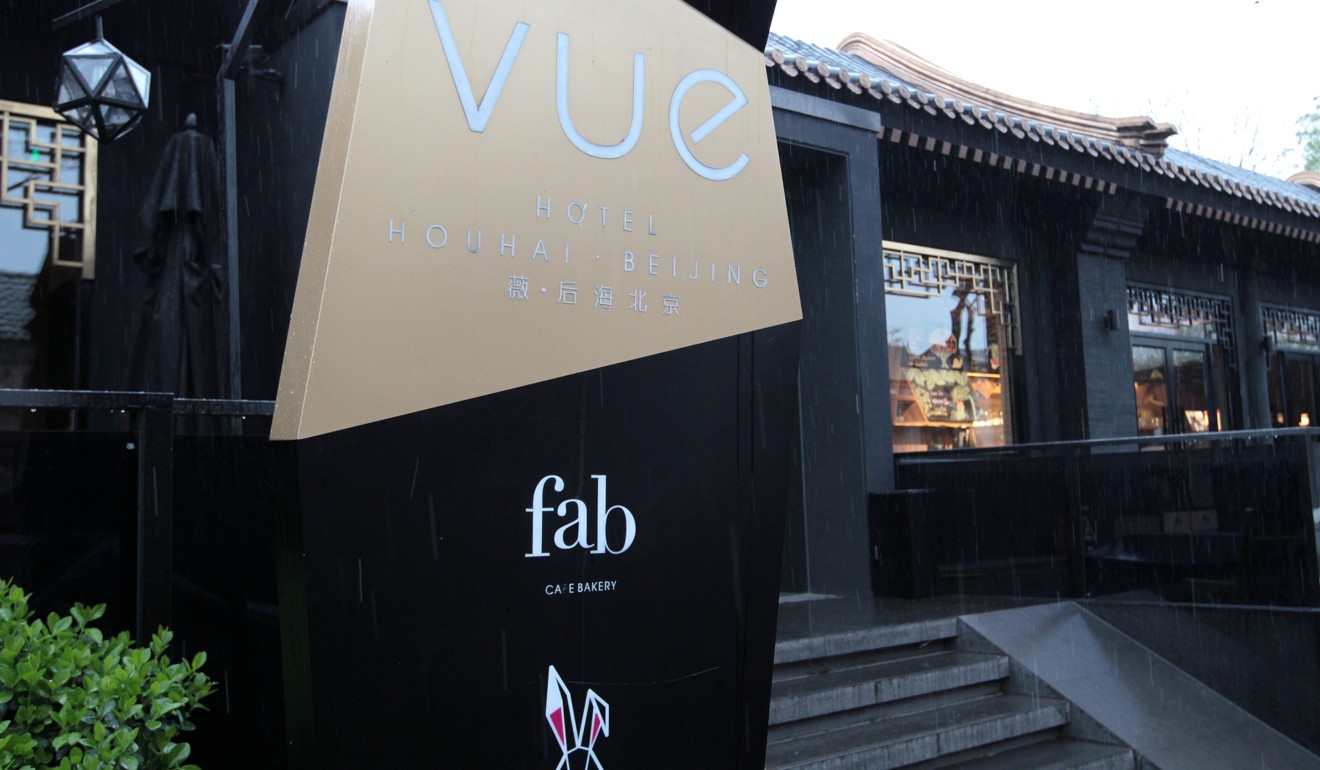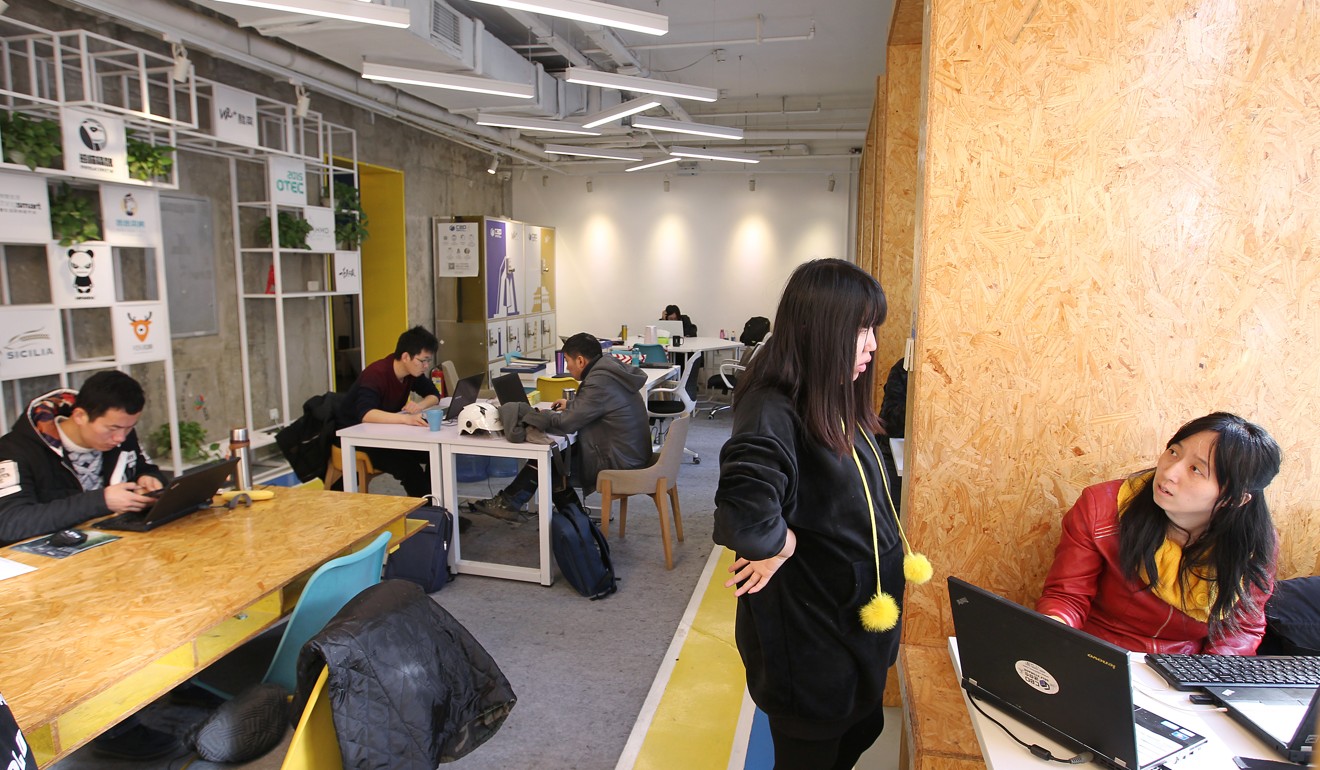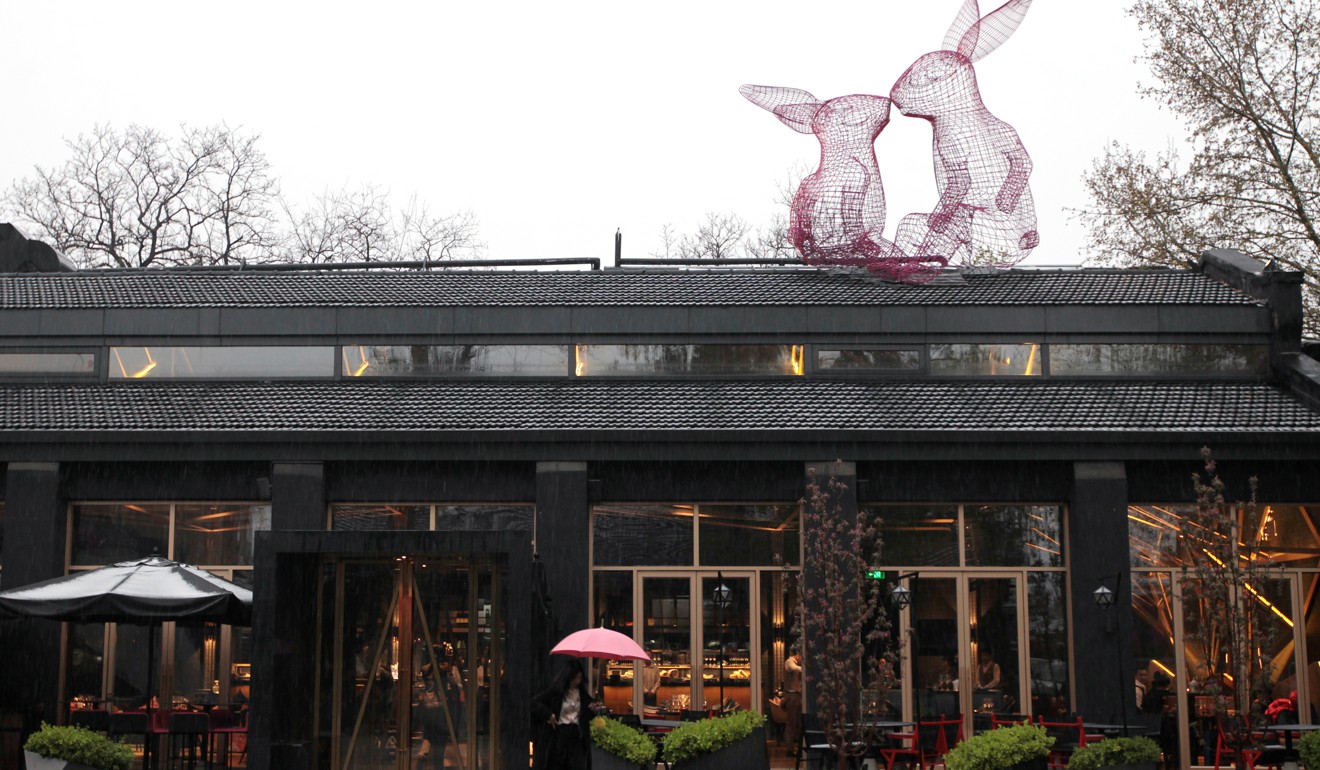
Beijing old sites and buildings are now funky hotels and offices as land use control tightens
The conversion pace has accelerated with the government’s halt in offering new sites extending from the city centre to the fourth ring road
An increasing number of old rundown sites in Beijing’s downtown and tourist areas is being converted into brand-new hotels and co-working spaces to meet consumer demand amid the lack of new development lots under the city’s stringent control of land use.
Vue Hotel, on the edge of lake Houhai, is one of the latest examples.
The boutique hotel was transformed from an insipid state-owned hotel, with the aim to marry Chinese traditional courtyard flavour with 21st century modernity.
“What we want to do is to provide an authentic, high-class experience that combines the best traditional Chinese culture and world-class services,” said the hotel’s owner representative Andy Mok.

In Beijing, transforming old and historical sites into modern offices, restaurants and hotels is nothing new, but the pace has accelerated because of the government’s halt in providing new sites extending from the city centre to the fourth ring road. The fourth ring road has an eight kilometre radius from the city centre.
“Under the Beijing development plan 2016-2035, new commercial real estate projects are not allowed in the downtown area. So there is really a strong interest in acquiring old sites and developing them into new properties, with offices topping the demand,” said Zhang Ping, executive director of International Federation of Finance & Real Estate.
The old Kaiyuan Hotel in Caishikou – a neighbourhood in Xicheng district where most of Beijing’s capital punishment during the Qing dynasty were carried out – was sold to a private equity fund two years ago and converted into ZRiver Trust Building, which will be opened this year.

Around Vue, a number of other hotels have sprouted up in the hutongs, traditional alleyways that feature courtyard house culture. Similar projects can be also found in hutong-heavy Gulou, Dongsi, Qianmen and Sanlitun areas. 5Lmeet, a new co-working, living community, is converted from a soy sauce factory in Dongsi.
The Vue hotel, currently in its soft launch, has tried to display modernity in fun ways: the two wireframe kissing rabbit sculptures perched on the roof of its grey warehouse-turned restaurant named Pink Rabbit, and a rooftop Moon Bar. The property stands in a large courtyard designed with geometric colour shades to give a contemporary feel.

Vue said it had drawn some high-flying customers: financiers find the hotel lounges a convenient spot to pitch potential business clients, pop idols meet their fans in the restaurant, and foreign diplomats and correspondents hold parties in the premises.
But it pointed out that more customers were domestic visitors from around the country. Women who would spend hours in the restaurant taking selfies to post online, parents bringing their children to the hotel for a taste of the western lifestyle.
“More and more Chinese middle class has the economic means and sophistication to seek an authentic experience,” Mok said.

